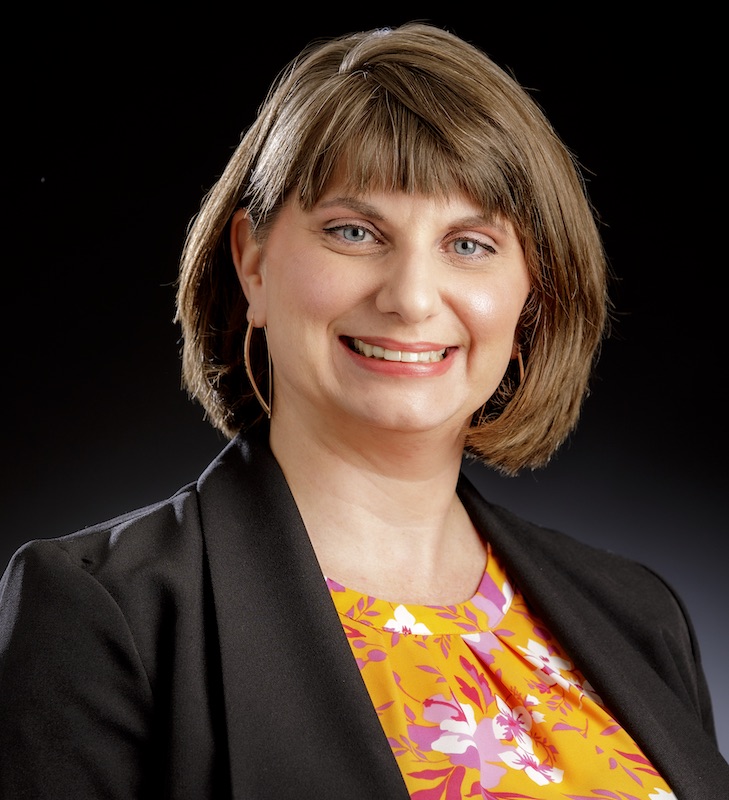
Ways to cope with mental health
Monday, April 12, 2021
Media Contact: Jordan Bishop | Communications Specialist | 405-744-9782 | jordan.bishop@okstate.edu
The pandemic adds another layer of stress to finals preparation, but there are still ways to take a break and practice self-care.
Nikkie Dunnigan, a clinical counselor in University Counseling Services, said she has had to learn, along with everyone else, how to cope with everything this past year. With mental health awareness week this week, she talked about ways to deal and overcome that stress.
“Where I come from as a counselor, one of the best things we can do during these times of uncertainty is just to validate that,” Dunnigan said. “Yeah, it is weird. We haven’t lived through this before. It is OK to be overdone. It is OK if you are not feeling great. It is OK to not be OK.”
Dunnigan said college students have had an especially trying time. The line between too much stress and an optimum amount is a very thin margin so trying to maintain that balance can be tough.
“Clinically, we say you can have stress, you can have a lot of stress, but when it starts affecting your quality of life, it has at least become an issue by then,” Dunnigan said. “It doesn’t mean you can’t address it before that, but a lot of people push before something falls. So their grades start to fall, they are not attending class. Their actual quality of life is affected, they can’t sleep.”
Pulling yourself back from that point is difficult, but Dunnigan said it is key to try to take a break or do something different for a little while to take your mind off of what is causing the stress.
Prioritizing what is really important and needs to get done over what we think should get done is also vital to maintaining a healthy stress balance and not overloading yourself, she said.
“I have so many students who come and say, ‘Well, you know I am only in 12 hours this semester.’ Well 12 hours is full-time,” Dunnigan said. “That is a full load and a lot of people take on more than full when they feel like they are supposed to. So here at the end of the semester, we are just basically making sure we keep our self-care up and letting go of anything that we don’t have to do. We tend to replace the things we have to do with all the things that we should do. That doesn’t work. So figuring out a few things to let go might help.”

In her work, Dunnigan talks about how stress can become an activator for system overload in your brain, which is broken down into three parts: the brain stem, the midbrain and the frontal lobe.
The brain stem takes care of basic functions such as eating, sleeping and fight-or-flight responses, whereas the midbrain focuses on emotional and social interactions. She said if needs in those two areas aren’t being met, you will have trouble unlocking the critical thinking functions in the frontal lobe. Whether it is becoming so stressed you stop eating or sleeping — which affects the brain stem — or shutting yourself off from friends or family — which affects the midbrain — those will hinder your frontal lobe functions.
“We are expecting [college students] to always be able to access that front part of the brain and we don’t always have the proper support for students in the other two areas of the brain,” Dunnigan said.
The pandemic has had an effect on the midbrain’s function because the social needs aren’t being met like they were beforehand.
Dunnigan said if students get to the point where they’re shutting down, that’s a good sign they need to talk to someone, whether it be friends, family or a counselor. Dunnigan said there are many coping skills students can try to help ease their stress.
“Things as simple as cooking yourself dinner or taking a nap,” Dunnigan said. “There are so many options that you will be able to find three or four things. I suggest clients try a couple of them. It all depends on what the individual needs. So if they tend to have panic attacks when they sit down to do their school work, I would encourage them to try doing one of the coping skills beforehand just to calm and regulate their system so they can focus on their work or maybe meditate before bedtime.”
If one coping exercise doesn’t work, she said to try a different one until you find one that works for you. Visit https://www.yourlifeyourvoice.org/pages/tip-99-coping-skills.aspx to learn more about coping strategies.
“It isn’t like you will do one coping skill and all of a sudden you are feeling better, but I ask them to treat it as an experiment,” Dunnigan said. “If you feel like you are about to be upset, take a five-minute break and try one of the coping skills and see if it helped or made it worse and try to find one with a good fit.”
For graduating students anxious about heading out into the job market and starting a career in a pandemic, Dunnigan said it is OK to feel that anxiety, but to remember to put things into perspective.
“I try to remind them that the first job whenever you are out of college is your first job. It is not your final job,” she said. “It is OK. It is a new beginning, not just the end.”
UCS is located at 320 Student Union or can be reached at 405-744-5458 and at https://ucs.okstate.edu/
